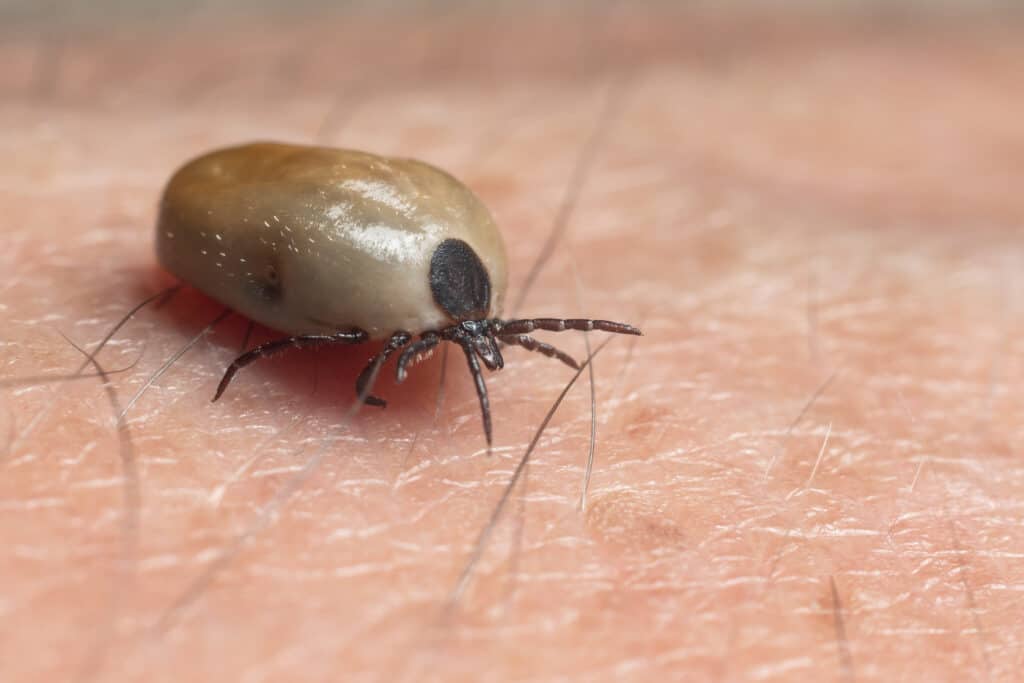Ticks are small arachnids that require blood meals to complete their complex little life cycles. Ticks are scientifically classified in the same family as spiders. The fossil record suggests ticks have been around at least 90 million years. There are over 800 species of ticks throughout the world, but only two families of ticks, Ixodidae (hard ticks) and Argasidae (soft ticks), are known to transmit diseases or illness to humans. Hard ticks have a scutum, or hard plate, on their back while soft ticks do not. Ticks have a life cycle that includes eggs, larvae, nymphs, and adult male and female ticks. The larvae, nymphs, and adults all need blood meals. Usually, the female adult (hard tick) is the one causing the most bites as males usually die after mating. Ticks do not jump or fly. They simply reach out with their legs and grab or crawl onto a host. Although some larvae have preferred hosts, most ticks in the nymph or adult phase will attach a get a blood meal from several different kinds of animals, including humans.
Except for a few species of larval ticks, the immature phases (larvae, nymphs) usually are even less selective about where they get a blood meal and are known to bite snakes, amphibians, birds, and mammals. Larvae are very small (about 1/32 of an inch with six legs), while nymphs are about 1/16-1/8 inch with eight legs and adults about 3/16-1/4 inch with eight legs.

